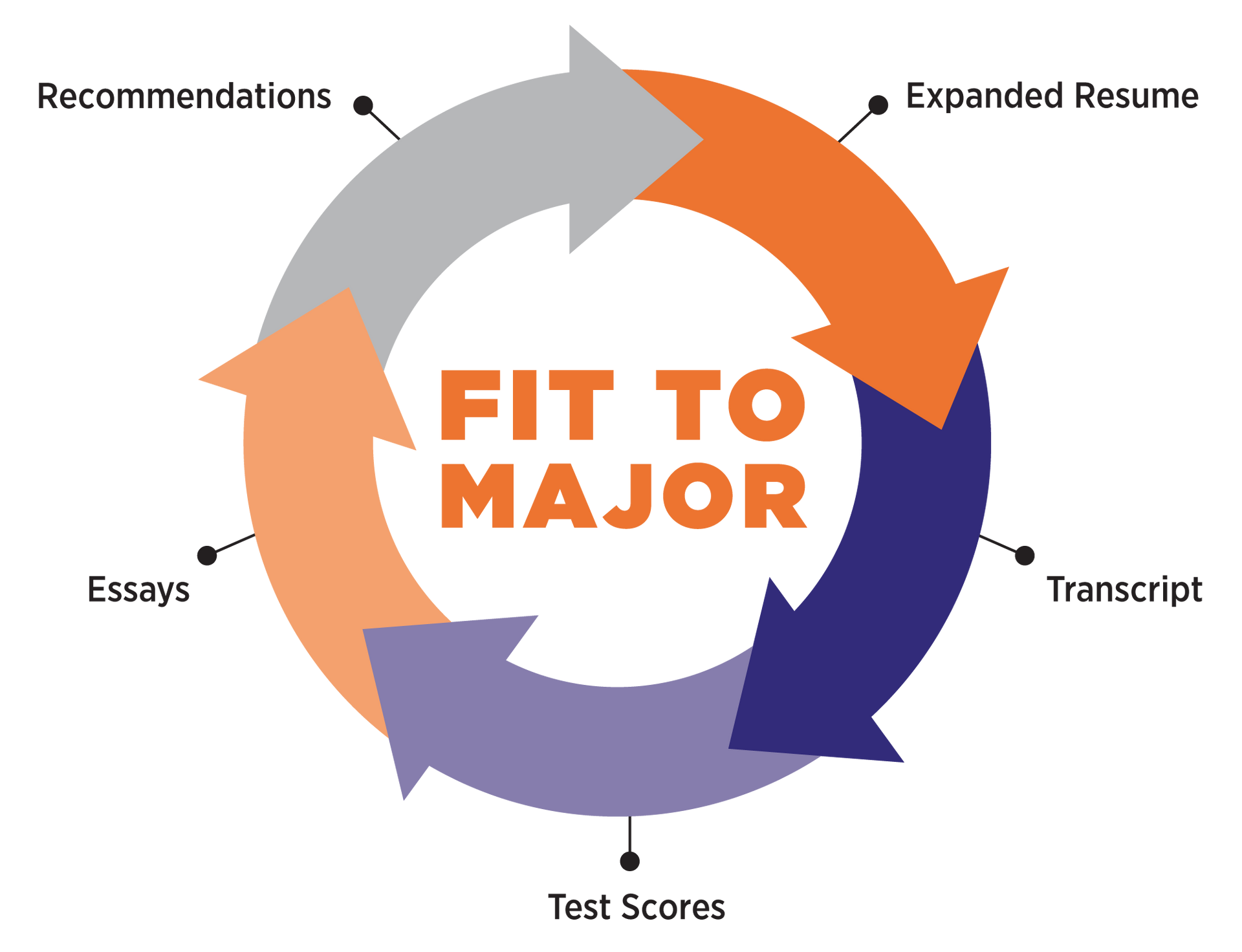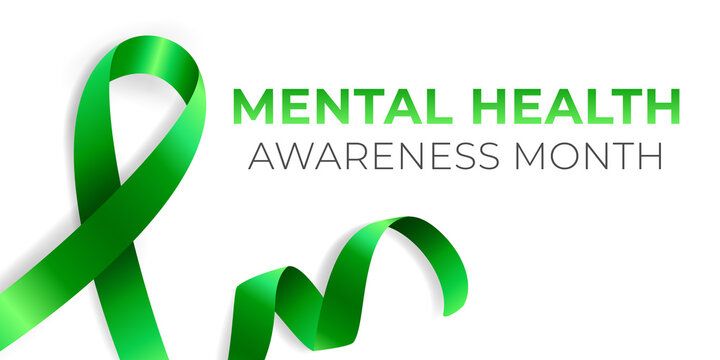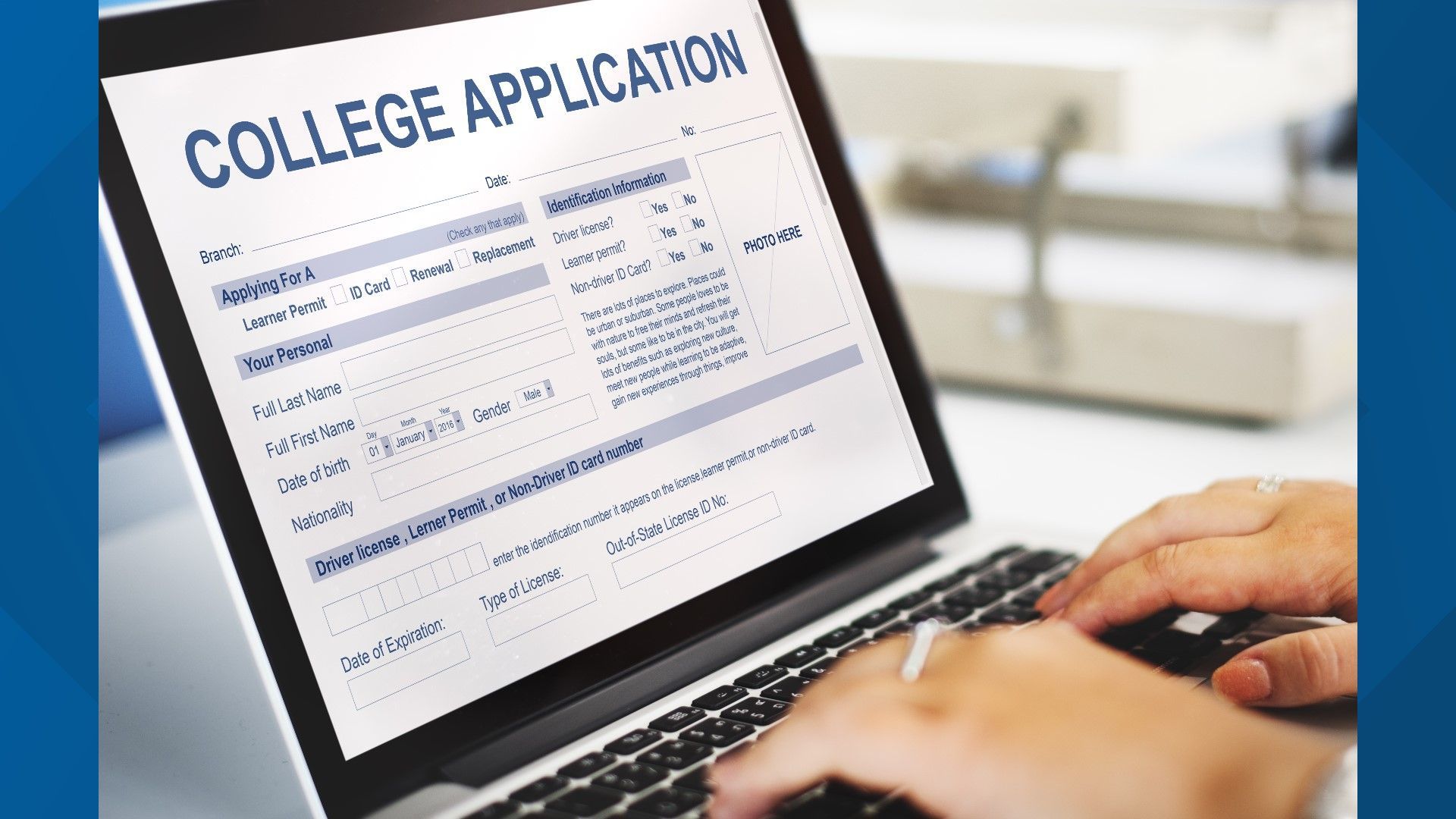This page is licensed under Creative Commons under Attribution 4.0 International. Anyone can share content from this page, with attribution and link to College MatchPoint requested.
Get in touch
Updated Information on All Things College Admissions

By Bob Carlton
•
14 May, 2024
The age of generative AI tools like ChatGPT brings both opportunities and challenges for our teenagers. By focusing on these three essential skills—critical thinking and information evaluation, effective communication and digital etiquette, and cybersecurity and digital privacy—we can help them thrive in this ever-evolving digital landscape.

By Josh Neimark
•
12 May, 2024
While the biggest predictor of success in college is success in high school, “success” doesn’t mean your student must have achieved straight A’s. As all parents of students with learning differences know, LD students often have to work three or four times as hard as their non-LD peers to make similar grades. Even if your student has accumulated a B- or even a C+ average in high school, they could have academic success in the right college environment with appropriate learning support, as long as they are motivated. When college readiness gets a little murky is if your student has a C- average or below. Then you might consider a GAP year or other option after high school to increase their academic readiness. In general, you can think of college readiness as a student’s ability to hang out in the B category overall - not necessarily in every subject. With every LD student, we know there are going to be academic challenges. That’s not the student’s fault. The trick is to find the places where your student has had success in high school - the “wins” - and build on them. You’ll want to ensure your student has had enough academic wins in high school to be ready for college. Here are 6 types of “wins” that can indicate students are ready for the demands in college: They are completing their homework and turning it in on time without parent or tutor reminders. They are asking teachers for help when they don’t understand something (self-advocacy) - or, they have a workaround for asking a teacher for help, such as a tutor that they engage with, not mom or dad. They are excited about one or more academic subjects or classes they’re taking or have taken. They can read and write at grade level. They can schedule their own appointments and show up on time without parental involvement. Their grades are holding steady or trending upward while they’re taking the same level of coursework. Some of these skills are easier to determine than others. It may be helpful to get an outside opinion from an expert who can give you an honest view of your student to help you evaluate college readiness. If you can pay for outside help it’s usually better because it’s easier to get an objective opinion. Here are some professionals to consult for help in determining your teen’s college readiness: School counselor: Just be aware that how helpful this person is can depend a lot on the school. Sometimes school counselors take the path of least resistance and underestimate the abilities of LD students. Learning specialist: if your student has a learning specialist who works closely with them on academic skills, the specialist will have an idea of how ready your student is for college. Hopefully, that person has been working with your student to strengthen these skills. Tutor: Checking in with your student’s tutor to see if your student’s self-advocacy and organizational skills have been progressing may be helpful to give you additional insight. Educational psychologist: Since many times you will be having your student retested in high school to qualify for accommodations during standardized testing and in college, it’s a great time to have a conversation with the educational psychologist about college readiness. If ultimately you determine that your student isn’t quite ready for college, try not to worry. There are plenty of ways for your teen to build the necessary skills they need to be college-ready during a gap year.

By Josh Neimark
•
11 May, 2024
Recommendations are a crucial part of any student's college application. No matter how exceptional a student appears based on their essay, short answers, and resume, the recommendations serve as a reliable confirmation that the student is as promising as the rest of their application implies. Because of the power that recommendations hold, it's important to discerning when choosing recommenders. It's even more important at UT, where a recent policy change means that they now only allow for two letters of recommendation. With only two chances, students really need to consider who will write the best recommendation for them. For starters, they should be sure the recommenders they choose know them well enough to say something unique about them. If a student's recommendations are boilerplate or general—and don't speak specifically to that student's strengths and abilities—they won't serve as a value-add for the application. Similarly, students should choose people who they think would be excited to write these recommendations, as that excitement will shine through in the letters and stand out to admissions officers. When it comes to UT letters of recommendation, students should take this opportunity to create a case for their first-choice major. That means asking for recommendations from people who can speak to the student's skills, abilities, and passion as it relates to their major choice. Let's look at an example. Say your student's first-choice major is computer science. Here are a few people who might be able to highlight those skills: A computer science teacher. It's an obvious choice, but a great one. This teacher can speak to your student's academic abilities in the subject as well as their growth mindset in this field. Did they grow over the course of the school year? Did they show a demonstrated interest in the topic? Did they serve as a leader for the classroom? An internship supervisor for a CS-related position. If your student did an internship related to their major, their supervisor is a great recommender. They'll be able to highlight your student's strengths outside the classroom and speak to their professional demeanor. A tutor for a coding class. If your student went out of their way to learn CS skills on their own, they may have a tutor who was helping them along the way. This person can talk about the student as a self-starter and independent learner while still highlighting their experience within the first-choice major. Students have an opportunity here to move their case forward with their letters of recommendation, but they need to put some serious thought into who to ask. It's a particularly important choice at UT because of the emphasis on first-choice majors and the limited number of recommendations allowed. That means that a student's UT recommenders may be different from those they use for other colleges—where they might have a teacher from a class unrelated to their potential major write a recommendation for one school, that wouldn't be as appropriate for a UT application where they want to show their demonstrated interest in their first choice major.

By Josh Neimark
•
08 May, 2024
For students applying to colleges that review applications based on fit for academic major, like The University of Texas at Austin, the question of which major to choose can be a daunting one. UT Austin offers 170 fields of study across 13 undergraduate colleges and schools. While many students produce compelling applications for those majors, many others could benefit from a bit more exploration to identify a major that is a better fit for their demonstrated interests and aptitudes.

By Josh Neimark
•
08 May, 2024
As of last year, there were 3,982 degree-granting colleges and universities in the United States, according to the U.S. Department of Education. And yet, in the dynamic world of college admissions, applicants and their families tend to restrict their focus to a much smaller range of schools. For many students and parents, the word “college” conjures up images of a large research university, located in -- or at least adjacent to -- a major city. But beyond big universities with widespread name recognition, the U.S. boasts hundreds of smaller, liberal arts institutions where students can experience a different kind of college, complete with world-class academics, engaging extracurriculars, enthusiastic professors, and a supportive community.

By Abby Hofmeister
•
06 May, 2024
The University of Texas at Austin has made significant changes to its undergraduate application requirements this year. Standardized test scores will be mandatory for Fall 2025 applicants, and students will now write a personal statement and two short answer essays. UT Austin has also introduced a new early action deadline of October 15, guaranteeing a decision by January 15, and will now emphasize non-school recommendation letters. These changes aim to provide a more comprehensive view of applicants, so be sure to showcase your fit for your chosen major, your achievements, and your community impact throughout your application.

By Josh Neimark
•
02 May, 2024
The college planning process can be a challenging and ever-evolving journey for students and their families, especially for those who have experienced emotional, behavioral, or learning challenges. At College MatchPoint, we guide students and families through this complex process, helping them navigate the unknowns and adapt to changes along the way. Below we explain some of the unique considerations and strategies for supporting students with mental health issues and learning differences as they embark on their path to higher education. PARALLEL PATHS In our work with students who have significant learning differences, as well as those who have mental health considerations, we often describe the process of college admission and selection as having two parallel paths. The first is straightforward: the exploration of postsecondary opportunities, university or otherwise; a standard approach to applications (and all the moving pieces of that puzzle—activity résumé, essays, and so on); college visits; and, ultimately, the selection process. The second path is the constant monitoring and awareness of the challenges that the student and the family system undergo throughout the timeframe we work with them. We often tell parents that what we know now about their child and his or her college admissions may very well change—sometimes for the better and other times in ways that will demand problem solving and a change in planning strategy. In other words, what we know in October could be very different in March. Alongside these parallel paths is the very likely reality that the process for challenged or struggling adolescents might look quite different than the more typical student’s. Guiding such students through the college admission process is generally less linear, and the “order of operations” can end up being rearranged because of differing circumstances. The endgame in advising those students is not just sending them off to the college of their choice, but having them embark on their journey with a support system. The design of that support system must be a collaborative effort between the consultant and student, with parents in advisement. We also know that the letting go experience for parents can be complicated for any number of reasons. Our knowledge base and understanding of resources enable us to bring into play—with agreement between the student and parents—the components needed to design a structure within which a student can thrive in college. Students can also rely on the supports of that structure when circumstances change for them. Understanding both campus and community resources is the first step in this aspect of the planning process. CAMPUS RESOURCES Approximately two-thirds of students who have mental health issues also have a diagnosable learning difference or other consideration that may result in accommodations. That means that psychological and educational testing are key to a full understanding of a student’s personal profile. We utilize such testing as an educational tool to help students learn more about their challenges and how they can overcome obstacles. Making sure that students understand—in language they relate to—the relationship between their mental health needs and how they are affected as learners is vital to bringing a balanced approach to their academic life on campus. Setting a support plan in place must include registration with the Office of Disability Services on the student’s college campus once enrolled. Whether a student is qualified under psychiatric disability guidelines, learning disabilities, attention deficit disorder, other designation, or a combination of categories, the willingness to engage in accommodations can make all the difference in a student’s support plan, especially when facing challenges or episodes that interfere with their studies. EMOTIONAL SUPPORT In addition, there must be a clear plan for ongoing emotional support. College counseling centers can be great resources for students; however, most students entering college with a history of mental health issues have grown more sophisticated in their needs and in their expectations of providers. As a result, identifying a therapist within the community who has experience working with college students is a better working model than relying solely on campus counseling services. That designated point person can work with the student to coordinate and assess how the support plan is working and how the professional relationships the student engages in are going on a week-to-week basis. ACADEMIC CALENDARS Students who experience a wide range of mental health issues need to address the same set of considerations as more-typical college students, although any number of those areas can be magnified. For example, consider the various university academic calendars and how they might affect different types of students. Quarter-term campuses, for example, can be a good fit for students with mental health issues because the shorter rotation of classes allows for more-frequent change and potentially fewer classes to manage. The downside of quarters is how quickly a student can fall behind if they are missing classes or struggling. As with any planning process, most students can benefit from being flexible and creative with college schedules—this is especially pertinent for those who experience mental health issues. CUSTOMIZED EXPERIENCE Beyond coordinating support services, the goal is not to find ways for students to “fit in” or take the conventional route as college undergraduates. We encourage embracing opportunities to customize the student’s experience. That may include a reduced schedule for some students, helping them balance campus life with courses, activities, and work. Attending summer courses for credit can help students stay both engaged and on track as they work toward graduation. For some students being close to family can be a huge support. Equally important, opportunities that benefit more normative college students are amplified for those with mental health challenges, so students should be encouraged to pursue study abroad, independent study, and other opportunities to focus on areas of interest while balancing completion of core requirements. Helping students curate a personalized college experience is a key job for those with roles in the student’s college life. SUCCESSFUL OUTCOMES Our team is dedicated to learning how to best serve each student's individual needs, recognizing that this is a process in itself. We collaborate with students, parents, and other professionals to create customized college plans that take into account each student's strengths, challenges, and goals. By engaging in this thorough and personalized process, we help our students find colleges where they can thrive academically, socially, and emotionally, setting them up for success in their postsecondary journey and beyond. If your student would benefit from individualized support in their college planning process, click here to schedule a complimentary session with one of our experts.

By Bob Carlton
•
25 Apr, 2024
Middle school is over - and the aim of the summer break is to rejuvenate and prepare for the transition to high school. The right mix of relaxation, learning, socializing, and exploring new interests will ensure your teenager enters 9th grade feeling refreshed, prepared, and excited. Here's to a fantastic summer ahead!

By Bob Carlton
•
25 Apr, 2024
With the recent celebration of college decision day, now is the perfect time for parents to plan their withdrawals from 529 college-savings plans. These tax-advantaged accounts have become increasingly popular as a way to save for education expenses, and it's crucial to understand how they work to maximize their benefits.

By Bob Carlton
•
25 Apr, 2024
Student-athletes who excel in both academics and sports have an advantage in college admissions, but it's not a guarantee. Strong profiles and passion for the institution can increase the chances of admission. Athletes should also consider their priorities and the specific programs and positions offered before applying for sports scholarships.

By Bob Carlton
•
25 Apr, 2024
If you're passionate about nature and want to help protect the environment, a degree in forestry could be the perfect match. Forestry is the study of trees and forests, and it's essential for preserving natural resources. By pursuing a degree in forestry, you can play a critical role in protecting the environment for future generations.

By Bob Carlton
•
25 Apr, 2024
As your teenager prepares for the journey to college, it's important to plan their summer activities carefully to make the most of their time. Don't worry if you feel overwhelmed, there's still plenty of time to create a memorable and enjoyable summer by brainstorming ideas and creating a plan that fits your family's needs.

By Bob Carlton
•
24 Apr, 2024
With the growth in college applications, extracurricular activities have become an even more important component of college admissions, but it's not about quantity. Colleges are looking for students who have a genuine commitment to their chosen activities. Encourage your teenager to find a core set of meaningful activities and devote time and energy to them, rather than spreading themselves too thin.

By Bob Carlton
•
22 Apr, 2024
The college application process has become increasingly competitive this year, with many high school students feeling pressured to attend prestigious universities. However, the super low acceptance rates at these top-tier schools have contributed to a rise in anxiety and depression among teenagers.

By Bob Carlton
•
22 Apr, 2024
Having a personal website can be a great way for students to showcase their skills and interests in their college applications. Students can use their website to feature their projects, blog about their experiences, and showcase their talents through videos or portfolios. Additionally, a personal website can help students stand out in a crowded applicant pool and demonstrate their tech skills to admissions committees.

By Bob Carlton
•
22 Apr, 2024
Are you considering a business major? You’re not alone. Business is the most popular major among college applicants today. Many colleges like to see that you have some business experience to back up your interest in the major. If you haven’t already nailed down a plan for a summer activity exploring the business field, you still have time to make a great plan.

By Abby Hofmeister
•
15 Apr, 2024
As we enter Spring, your child may be grappling with "junioritis," a term that perfectly captures the stress, overwhelm, and anxiety many 11th graders experience during this time. With the end of the school year approaching, juniors face a perfect storm of academic pressures, looming deadlines, and the ever-present stress of college planning. As a parent, your support and guidance can make a significant difference in helping your child navigate this challenging period. By focusing on academics, finalizing summer plans, and prioritizing emotional well-being, you can help your junior finish the school year strong and emerge better prepared for the exciting journey ahead.

By Abby Hofmeister
•
08 Apr, 2024
This year's elite college admissions have hit record competitiveness, with more & more colleges becoming highly selective. The application surge, particularly to 'extreme reach' schools, has drastically lowered admit rates. Maintaining high academic standards, most successful applicants are in the top 5% of their high school class. The rise in applications to selective majors, especially in business and STEM fields, indicates shifting priorities in higher education. These five critical numbers tell the evolving story of this year's admissions season at the most selective colleges.

By Bob Carlton
•
04 Apr, 2024
Warm weather, southern hospitality, and university sports teams draw a lot of students to apply to Southern colleges. And often these colleges are more affordable than their counterparts on the coasts. If your teen is targeting colleges in the South, you may be interested in this list of colleges that not only provide an excellent academic experience but are also easy on the pocketbook.

By Bob Carlton
•
03 Apr, 2024
The college application process can be a stressful time for teenagers, and it's not uncommon for mental health issues to arise during this period. As a parent, it's essential to be proactive in building a support system for your teenager to help them navigate this challenging time. Here are some tips to help you build a strong support system during the college application process.

By Bob Carlton
•
03 Apr, 2024
Students often wonder how colleges compare their high school to others. It’s a great question! Admissions counselors look at a high school’s profile to see what classes and extracurricular activities are available at that school. The school profile is a public document that is often located on the high school’s college counseling website. It includes information such as: School population, average test scores, AP classes offered, AP test results, grading criteria, average GPA, and most common colleges attended. The profile is typically sent to colleges along with a student’s transcript during a student’s senior year.

By Abby Hofmeister
•
03 Apr, 2024
In today's rapidly evolving digital landscape, the fusion of business and technology has become increasingly crucial for driving innovation, efficiency, and growth across industries. Forward-thinking students seeking to unlock the immense potential at this intersection can position themselves for successful and impactful careers in fields such as fintech, data analytics, e-commerce, and more by combining a solid foundation in business principles with cutting-edge technological skills.

By Abby Hofmeister
•
03 Apr, 2024
Music has the power to connect people, transcend boundaries, and create vibrant communities. For many, the allure of living in a city with a thriving music scene is irresistible. If you're a music lover looking for a college experience that combines strong academics with the energy and creativity of a music city, consider these hidden gem colleges located in some of the most exciting musical hotspots across the United States.

By Bob Carlton
•
03 Apr, 2024
While rage-applying may seem like a way to increase one's chances of getting into a good school, it can do more harm than good. College admissions committees can detect desperation and lack of commitment. It is important to focus on a smaller number of applications and ensure that they are well-written and thought-out to increase one's chances of admission.

By Bob Carlton
•
03 Apr, 2024
Too many American teenagers have experienced extreme stress and anxiety in the college admissions process. The pressure to excel in multiple areas is oppressive, and the lack of transparency in the process only makes it tougher. But now more than ever, meaningful changes must be made to de-escalate this mounting teen mental health crisis. In this post, we're exploring 5 specific modifications that would help ease teens' worries - from providing resources to increasing accessibility - so that families can look ahead with hope, rather than dreading what's ahead. It's time for positive action: let's make these changes happen!

By Bob Carlton
•
03 Apr, 2024
Direct admissions is a powerful tool that is helping to make the college application process less stressful and more accessible for high school students. By removing the uncertainty from the equation and providing guaranteed admission to qualified applicants, colleges are able to reach a wider range of students and build more diverse and inclusive student bodies.

By Josh Neimark
•
03 Apr, 2024
May 1st is a big day for high school seniors all across the United States. This is the deadline for them to make their final decision and choose the college they will attend. For many students, it's a time of excitement and anticipation, full of opportunities and possibilities. But what about students who are hoping for a spot off a college's waitlist? Is it worth it to wait and see? The answer to that question is not a simple one. A college waitlist is a group of students who have not yet been accepted or denied admission to a college. Colleges use waitlists for various reasons, such as ensuring a properly-sized incoming class, or to address other institutional needs and priorities. For students who have accepted a spot on the waitlist, it's important to keep in mind that the final decision won't be announced until after May 1st, and sometimes as late as June, July, or even August. Furthermore, waitlists can vary greatly from year to year, and there's no surefire way to predict whether a student will be offered a spot in the incoming class. However, if a student is genuinely interested in attending a school, it doesn't hurt to stay on the waitlist. We recommend that students carefully read their waitlist offer, as it often includes information on what steps to take next. Students on the waitlist might also consider writing a Letter of Continued Interest , summarizing any new updates or accomplishments since they applied, and highlighting the reasons they would be a good fit for the school. It's important to remember, though, that students should also accept their offer from the college they have decided to attend and stop thinking about the waitlist. We encourage students and families to approach the waitlist with a positive mindset: give it your best shot, hope for the best, and prepare to thrive at the college you do end up attending. So, is it worth it to wait and see if you'll be offered a spot off a college's waitlist? It depends on the student's individual situation and priorities. For some students, the chance to attend their top-choice school is worth the wait and uncertainty. For others, it may be more important to have a definite plan in place and move forward with the college they have already chosen. Ultimately, the decision is up to the student and their family, but staying positive and proactive can help make the waitlist process less stressful and more manageable.

"College MatchPoint helps steer and advise you from beginning to end of the college search and application process. They take what can be a very stressful time and break it down into smaller, manageable pieces. Bob, Lisa and their staff support their student clients, enabling them to find the best fit. You can trust that the process will work; it did for all 3 of my very different kids."
— Ellen Miura
Subscribe
Sign up with your email address to receive news and updates.
Email signup
Thank you for contacting us.
We will get back to you as soon as possible.
We will get back to you as soon as possible.
Oops, there was an error sending your message.
Please try again later.
Please try again later.
© 2024
ALL RIGHTS RESERVED | COLLEGE MATCHPOINT | SITE BY FIX8




